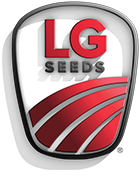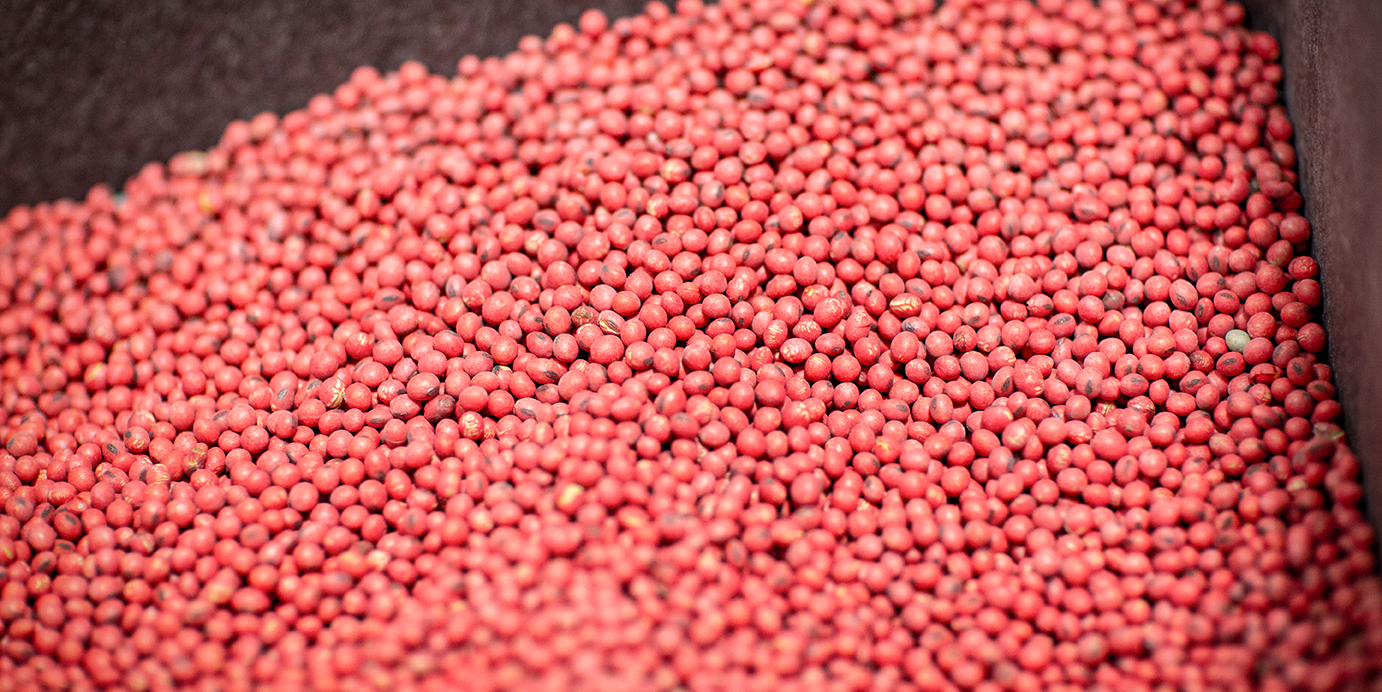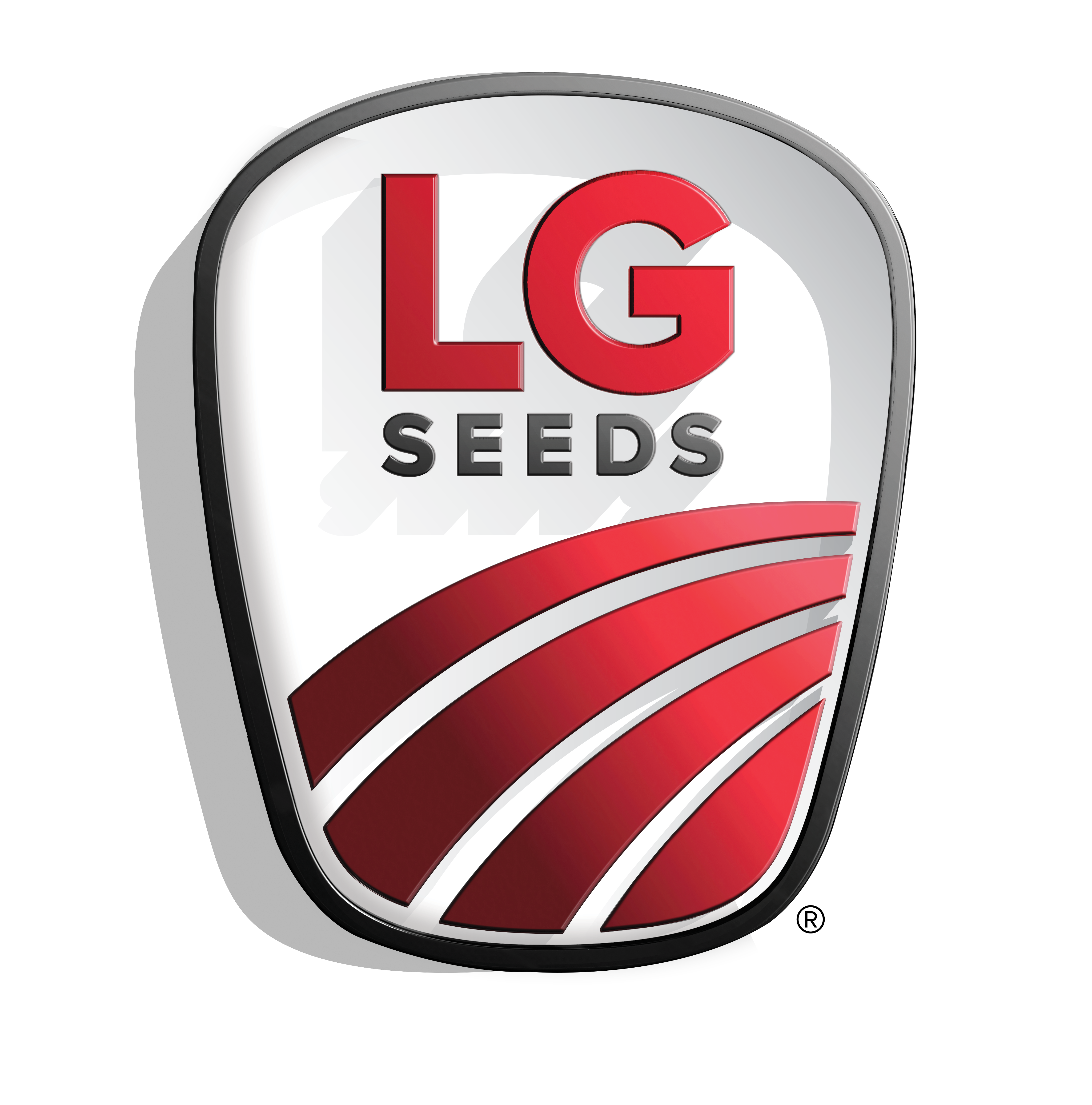AGRONOMIC RESOURCESTO SUPPORT EVERY SEASON
YOU CAN TAKETO THE FIELD
Get Crops Started on the Right Foot with Seed Treatments
Whether you’re making a play for higher yields or protecting your crops against disease or pest threats, there are many reasons to use seed treatments.
“Corn and soybeans have their highest yield potential when they’re in the bag. Seed treatments help preserve as much of that yield as possible,” says LG Seeds Agronomist Bryant Luers. “Using a seed treatment keeps threats at bay to get crops off to a strong start.”
When in doubt, opt for more protection
Luers recommends a higher-end seed treatment because they typically have more modes of action for warding off pests and disease.
“In most cases, you’ll get the best bang for your buck with higher-end treatments,” says Luers. “The more you can do to protect that seed, the better off you’ll be.”
Seed treatments can mitigate common soybean threats
Disease pressure is a major concern when it comes to soybeans. “Sudden death syndrome (SDS) and white mold are the big ones that come up in conversation,” says Luers. “Seed treatments are the best way to protect against those threats.”
In Luers’ territory of southeast Iowa and northeast Missouri, “SDS is a major soybean yield robber.” He’s not alone. The Soybean Research & Information Network (SRIN) reports “[SDS] has become one of the leading yield-limiting soybean diseases in North America.
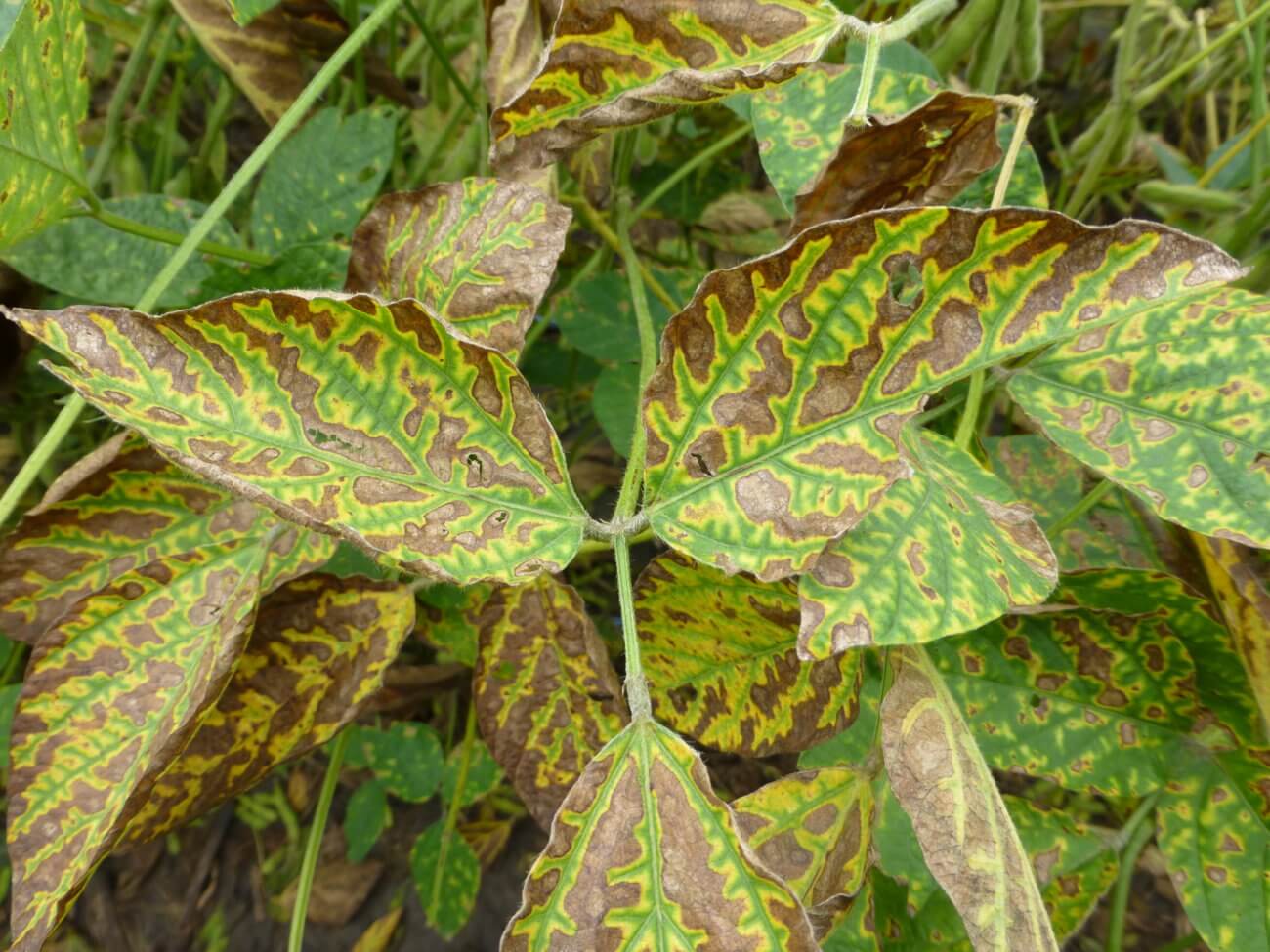
The fungal pathogen that causes SDS, Fusarium virguliforme, stays in the soil for a long time, making SDS a recurring issue for farms that have had it.
“SDS creeps into plants within the first 24 to 48 hours of planting,” Luers says. “You only get one shot at preventing it with seed treatments. If you opt not to put them on, it could come back to bite you.”
Therefore, Luers recommends farmers with a history of SDS use either a Saltro® or ILeVO® seed treatment to mitigate risks. These seed treatments can also protect soybean roots from nematodes that rob yield.
Defending against early corn threats
Nematode pressure can also be a big topic when it comes to seed treatments for corn, especially in western areas of the Corn Belt. “Plant-parasitic nematodes can cause serious damage to corn,” according to Greg Tylka with Iowa State University Extension and Outreach. He says symptoms include stunting and/or yellowing of foliage, swelling and/or browning of roots.
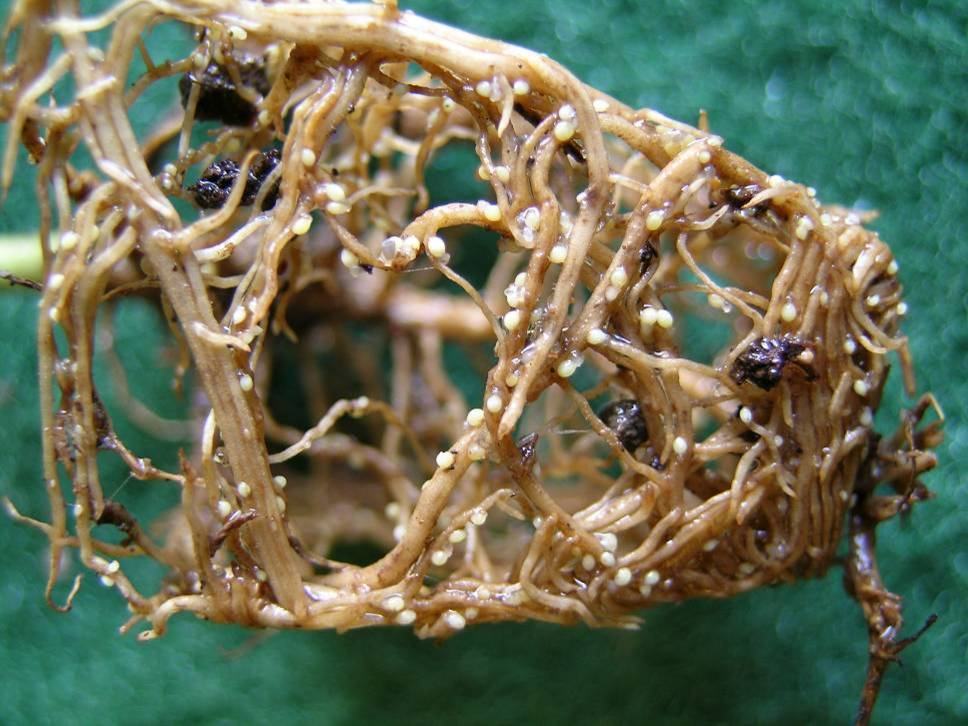
“If you have sandy soils and a nematode problem with your corn acres, you need to consider AgriShield® MAX or Poncho® Votivo® that includes extra nematicide protection,” Luers says.
Pythium is another early season corn threat on many farmers’ minds. “Almost every farmer in this area has experienced a year where Pythium destroyed a field or affected an entire crop,” says Luers.
The oomycete pathogens that cause the hallmark damping off and root rot of Pythium thrive in saturated soils. There are hundreds of species of the pathogen, which can also survive in soils for a decade or more.
In response, LG Seeds has committed to putting a promising new tool in farmers’ hands for treating Pythium. “Every new LG Seeds corn product is treated with Vayantis®, a new fungicide that targets Pythium, at no extra charge to the farmer,” Luers says. “Having that extra protection provides peace of mind.”Using seed treatments to boost yield
Using seed treatments to boost yield
Some farmers use high-end seed treatments as a yield play. LG Seeds’ in-house AgriShield® MAX seed treatment includes zinc, which helps corn plants develop a more fibrous root that boosts nutrient uptake and yield potential. Eight years of AgReliant Genetics trial data shows this adds an average of 3.1 bushels per acre to corn yields.1
The seed treatment advantage can be particularly “massive” with soybeans, according to Luers. He explains, “Some seed treatments have a synergistic effect where they work together with the soybean seed to help with emergence and early vigor.”
LG Seeds has multiple seed treatment options and cutting-edge products to help farmers protect yield. Reach out to your local LG Seeds agronomists for support in making those decisions.


